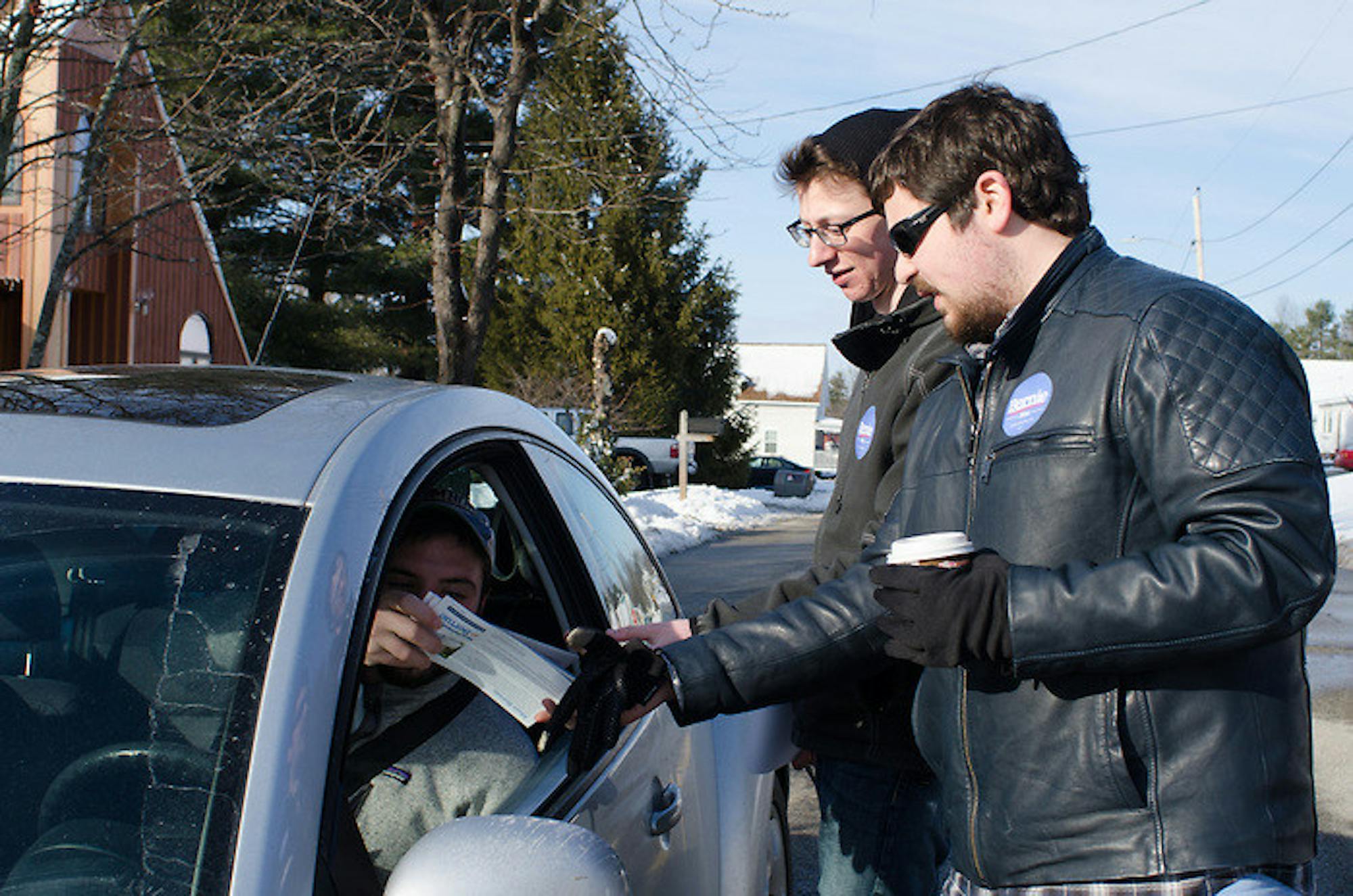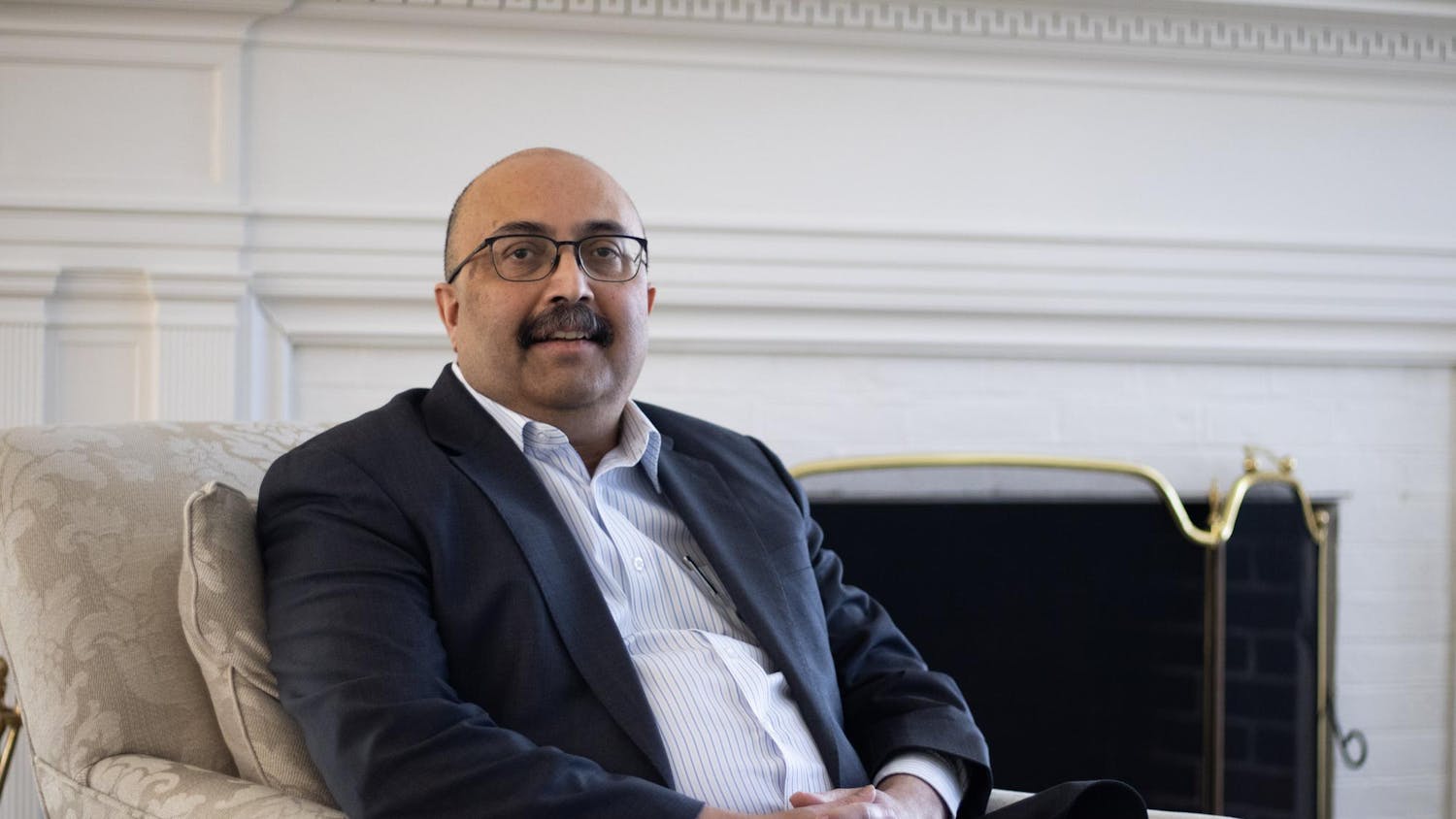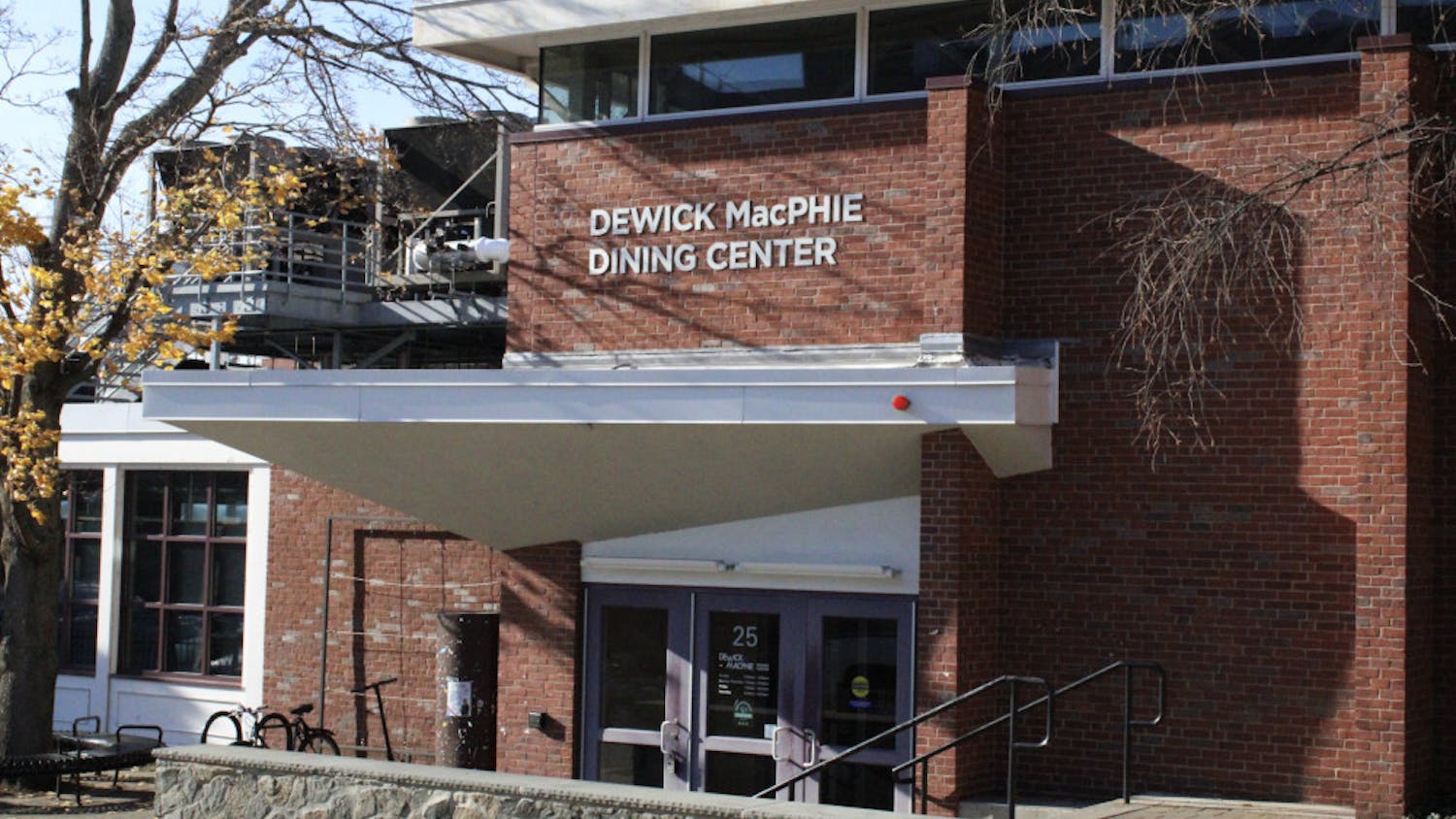Tufts for Bernie: Talking to voters personally
Approximately 13 members of Tufts for Bernie canvassed for Senator Bernie Sanders (I-VT) between Saturday and Sunday for Get Out the Vote (GOTV) weekend, according to volunteer Nick Nasser.
Tufts for Bernie co-founder Amy Kao said that this was the group's fourth weekend of canvassing in New Hampshire, explaining that the group had members canvassing once in the fall semester and every weekend since the beginning of the spring semester. Approximately nine people have canvassed for Tufts for Bernie on previous weekends, Nasser said.
The group's past trips have focused on visiting undecided voters and recording their support, while GOTV canvassing is intended to remind supporters to vote and help them with transportation, according to Nasser.
He said that GOTV canvassing is particularly exciting because the vast majority of their conversations are with committed Sanders supporters.
“Generally what you’ll find with the Bernie crowd [is that they] are very eclectic, interesting and kind people who are very giving,” Nasser said.
For first-year Nate Krinsky, last weekend was his fourth canvassing trip for the Sanders campaign. Krinsky also works at a phone bank for the campaign every week but said that he prefers to talk to voters in person.
“When you’re canvassing, you can actually talk to people and make a connection,” Krinsky said. “Phone banking is always a little more shallow because, when people aren’t looking at you, they don’t give you the same chance.”
Sophomore Zachary Bernstein agreed, explaining that many prospective voters appreciate the personal connection, even though some have felt overwhelmed by all of the campaigning in New Hampshire.
Bernstein said that this is the first political campaign that he has volunteered for and that he feels it is his generation’s responsibility to promote progressive politics.
“Even though you don’t exactly see the progress you make — it’s not incredibly tangible — it’s very emotional and it’s definitely worthwhile,” Bernstein said. “It makes you feel like you’re making a difference somehow and getting some people involved.”
Krinsky said that phone conversations he has had with Massachusetts voters make him optimistic about Sanders’ chances of winning the primary election within the state.
“Even if they don’t support him, they’re definitely open to his message, and I think that if New Hampshire goes well, Massachusetts voters will take notice,” Krinsky said.
Regardless, Tufts for Bernie’s canvassers agreed that New Hampshire's primary election will be important to determining Sanders’ future success.
“Even though New Hampshire is technically a home state for Bernie, winning New Hampshire, the first primary, does show that you’re a viable candidate," Nasser said.
Kao, a senior, said that after Tuesday, Tufts for Bernie will focus its efforts on canvassing in Massachusetts, in the lead up to the March 1 primary.
Tufts for Hillary: Canvassing for Clinton
Seven members of Tufts’ campaign arm of the former Secretary of State Hillary Clinton (D-N.Y.) took part in canvassing efforts on Saturday, knocking on doors and reaching out to primary voters.
Three of those members of Tufts for Hillary canvassed in a residential development in Merrimack, N.H., joining different college organizations campaigning for Hillary, including groups from Northeastern University, Brandeis University, Boston College and Wellesley College, according to Tufts for Hillary President Kate Mieher.
Mieher, a junior, explained that she was accompanied by junior Kate Morrow and sophomore Justin Krakoff in canvassing 45 homes while in New Hampshire. The three explained that they had encountered mostly positive responses from those whose doors they knocked, which were organized on a list from the Clinton campaign that used voter data and algorithims to optimize canvassing.
Krakoff, who is also an arts editor for the Daily, said that people have been welcoming to the out-of-state students. He referenced one voter who asked the group if any members needed water or wanted to use the bathroom.
Toward the end of the group's Saturday canvassing, at around 1:30 p.m., the three told the Daily that they had yet to meet one undecided or unprepared voter.
"People know who they're voting for," Mieher said. "Everyone knows their polling places—it seems very routine."
Asked why to explain their reasons for supporting Clinton, each referenced his or her own upbringing and Clinton's previous experience.
"I see her as Commander-in-Chief, and I'm excited for our first female president," Krakoff said.
Mieher agreed that Clinton's appeal comes from her comparatively greater experience with Washington, noting that her familiarity with how policy is made could make her very successful.
"I think Hillary could be a unifying force in Washington. I think she has experience in so many different parts of government as a Senator, as Secretary of State and even as First Lady. Washington knows her in a sense, and I think she knows Washington," Mieher said. "I really do like President Obama, but I think he could've been more effective in Washington if he had known Washington better."
For Morrow, Clinton's foreign policy expertise was a draw.
"I think for me, Hillary has experience that no one else has in the foreign policy area, which as Commander-in-Chief is super important," Morrow said.
Tufts CIVIC: Looking at both sides of the aisle
Twenty-three other students joined Tufts Cooperation and Innovation in Citizenship (CIVIC) on a Saturday trip to attend three presidential candidate’s rallies from both parties. This trip included rallies and a town-hall meeting from Governor Chris Christie (R-N.J.), Governor John Kasich (R-OH) and Clinton.
According to CIVICCo-leader Ben Hoffman, he and Co-leader Austin Kane planned the trip to engage college students in what they consider to be the most important political process.
“The goal of this trip is really to get students to see politics in action, as much as all of us are very interested in politics, and have a past of following it through news media. I think few people, have the chance to see a presidential candidate, to really understand how it happens, and why [that happens] in person,” Hoffman, a senior, said. “And I think that's a valuable experience to understand how it all works.”
Hoffman, who previously worked on Senator Ed Markey’s (D-MA) campaign, explained that CIVIC chose New Hampshire for the trip because the state is holding the first presidential primary in the nation.
"It is the state that very pretty much determines how the race will go, before a lot of candidates drop out, and it really is a place that specializes in retail politics," he said. "Candidates shaking hands with so few people and it sets the temperature, and you really see campaigns unlike anywhere else in the country, [considering] how small the state is.”
James Glaser, dean of Arts and Sciences, and his wife also accompanied the group on the trip this past weekend. While he was just an attendee on this trip, in the past he organized similar trips because he considers the experience to be interesting, fun and educational for students.
“In 1996, I started doing this with students … and we've done it every year, and I've done it every year,” he said. “Although four years ago, the New Hampshire primary was so early the students hadn't returned back from winter break, so I didn’t take a group of students up four years ago...a beautiful thing about this one is that I didn't plan it; CIVIC planned it, and I'm just going along for the ride."
Glaser said this kind of trip engages students because of the excitement of seeing American democracy in process.
“It's just awful a lot to learn,” he said. “You read about it; you hear about it in your class. It's just a lot to learn from participating in something like this, and you don’t have to love the candidates to totally appreciate this."
Despite the fact that both CIVIC co-leaders started planning for this trip a month ago, they finalized the schedule only the day before, on Friday, as they contacted the campaign managers after seeing the rally events publicly advertised.
"It’s hard to plan in advance, since the campaigns don't know where their candidates will be until two days before, and not even, [sometimes] the day before,” Kane, a sophomore, said.
According to Kane, the CIVIC trip received funding from Tisch College and TCU Senate. He added that the trip was open to everyone in the Tufts community, and CIVIC worked with Tufts Democrats, Tufts Republicans and PostScript, Tufts' independent political journal.
“The composition of our group is more accurately represents the community—generally the school leans pretty hard left,” he said. “I don't think [many students] at Tufts that are Republicans ended up showing up to this event, but they have more of a presence [in] our group.”
Kane said the process of choosing the candidate events for the trip depended on students' interests and candidates' availability.
"We ironed out who we'd choose in order, but in the end, just because of scheduling—we know that we've got one of the Democrats frontrunners—we got Bernie or Hillary, and that'd satisfy most of our plan, and we wanted to see a couple of…Republican candidates," he said.
Glaser said that the attractiveness and mission of the trip is being able to see views from both parties.
“We're doing this as a way of experiencing politics, observing... learning about politicians, not just as a way of showing your true colors,” he said. “Over the years, I've been to more Republican events than Democratic. But I learned something every time I go to one of these things.”
First-year Katie Windham, who attended the trip, said that the trip was a great opportunity for her to see the candidates.
“I'm generally very excited about elections and this [in] particular, if I can go to campaigns, I would go to campaign events,” Windham, who has already sent in her absentee ballot to vote in Virginia, said. “This is a really cool opportunity [to see] candidates that normally [people] wouldn’t be paying that much attention to; it's kind of cool."
Even though he already voted and is not an undecided voter, Jacob Malenka, a first-year from New Hampshire, said he was expecting to witness dramatic rhetoric from candidates, which has characterized much of the 2016 race so far.
“I'm personally hoping for somebody to make a major gasp or drop a bomb or some drama,” he said. “Sometimes you've heard one speech, you've heard it all... I want to hear something different… It's kinda getting late in…the season of primaries, and some might be stepping up the rhetoric.”
Dean Glaser said that despite difficulties in getting college students to participate in the voting process, Tufts students are generally relatively engaged in politics.
“I think it's very good at Tufts, but the fact is that college students are generally not good voters;l they're mobile, not living in home, not registered at the locations,” Glaser said. “That said, you'll find at any schools like Tufts very sliceable group of quite excited, interested students who have a little bit more time than regular people in the workforce and who're ready and willing to work on campaigns and get involved.”
New Hampshire pollingAt press time, most FiveThirtyEight polls predict that Sanders will win in New Hampshire, on the heels of his narrow loss to Clinton in Iowa last week. According to CNN News, Clinton placed first at the Iowa caucuses with 49.84 percent of the vote, edging out Sanders' 49.59 percent. Currently, FiveThirtyEight's nationwide polling suggests that formerSecretary of State Hillary Clinton has a significant lead over Sanders nationwide.Nasser and Bernstein said that Sanders’ showing in the Iowa caucuses demonstrates that his campaign has momentum. According to the NBC News Iowa Caucus results page, Sanders lost to Clinton in Iowa by 0.3 percent, or four state delegatesout of more than 1,400. However, most polls forecasted a more decisive Clinton win, according to FiveThirtyEight.
“The problem is, most Americans generally agree with his message but are fearful that they don’t think it can get done,” Nasser said. “But as soon as people realize that he’s a viable candidate, … they will vote for him.”
Bernstein and Krinsky both said that they would consider volunteering for Clinton in the general election if she gets the nomination but that Sanders is more appealing to them. Krinsky said that he has felt compelled to volunteer for Sanders because he requires more popular support, and that he would only help Clinton if she similarly showed a need for help.
Bernstein’s sentiments about Sanders' appeal with younger voters are reflected by statistics gathered in last week's caucuses in Iowa. According to NBC News, 84 percent of Iowa Democrats between the ages of 17 and 29 caucused with Sanders in the caucuses last week.
Currently, Clinton leads substantially in the next battle, the Nevada Democratic caucuses,50.3 percent to Bernie Sanders' 28 percent, according to the polling and analysis website FiveThirtyEight. After that, two candidates travel on to South Carolina, where FiveThirtyEight projects that Clinton has a 96 percent chance to win to Sanders' four percent.
Mieher, Morrow and Krakoff remain undeterred by Senator Bernie Sanders' (D-VT) large leads in the New Hampshire polls.
"It's [a] fact that polls show Sanders leading between 10 and 30 points...so it's volatile," Krakoff said.
The last time Clinton ran for president, she faced a similar situation against then-Senator Barack Obama (D-IL), having lost the primary caucus in Iowa before pulling a come-from-behind win in the Granite State.
"We've run into way more Hillary supporters than expected," Morrow said.
Krakoff said that because independents can vote in either the Democratic or Republican primary, updated absentee ballot data and state projections reported by Politicocould indicate record turnout that could benefit Clinton.
"Anything could happen—New Hampshire is a very volatile state, historically," Krakoff said.
For more photo coverage, visit the Tufts Daily’s photography blog Picture Tufts at http://picturetufts.tuftsdaily.com/2016/02/08/get-out-the-vote/






